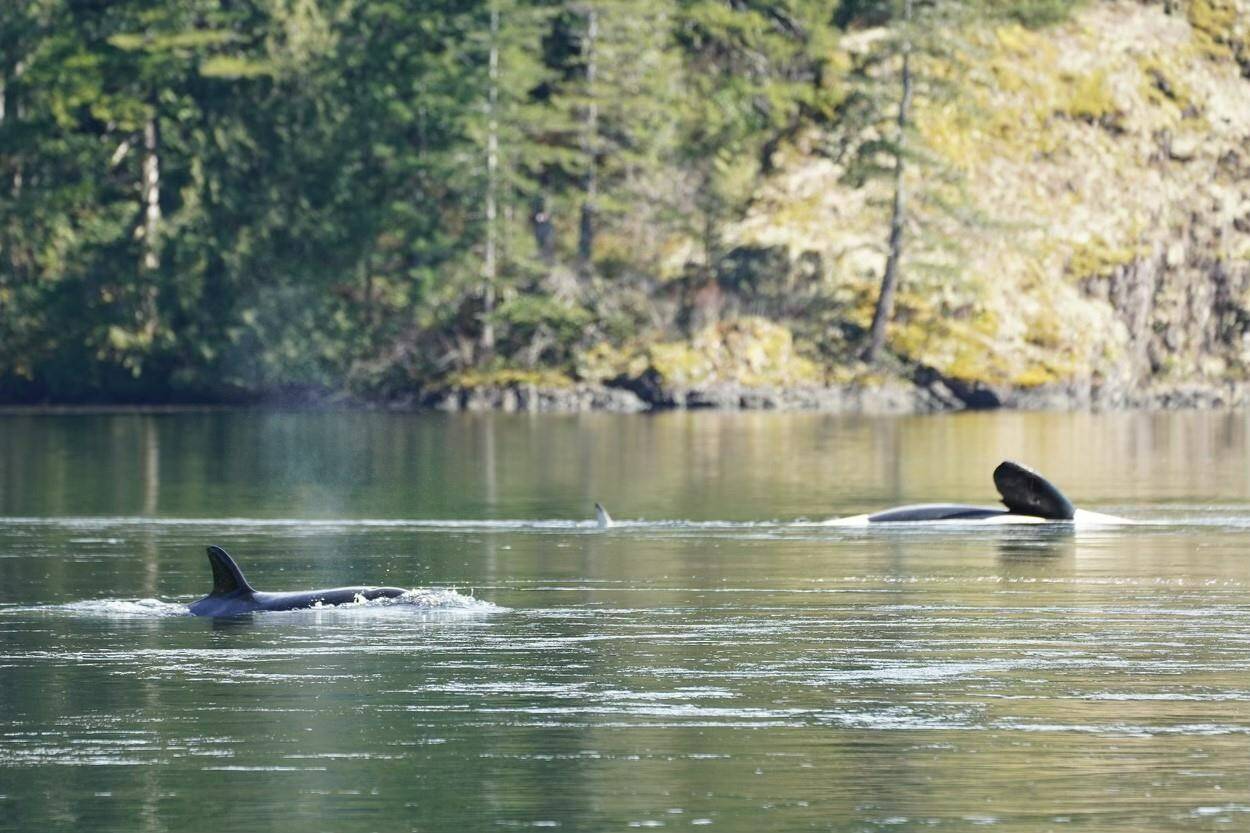It will be another day of waiting for those hoping to coax an orphaned whale out of a northern Vancouver Island lagoon, while rescuers turn to artificial intelligence to help track the calf’s family.
The Fisheries Department says the tides in the remote location continue to be too low for efforts to encourage the two-year-old Bigg’s killer whale to go over a sandbar and into the open ocean.
The statement says the animal, which has stayed in the lagoon since its mother died more than a week ago, has remained in the deepest area in the middle and is believed to be eating birds.
The tides are expected to be more promising later this week in the northern Vancouver Island lagoon where an orphaned orca so far can’t be convinced to leave.
Work to coax the two-year-old Bigg’s killer whale over a sandbar and into the open ocean started after its mother died more than a week ago when she beached at the lagoon and could not be saved.
Low tide in the remote location off the northwest tip of Vancouver Island forced rescuers to pause their efforts over the weekend.
Methods that have been tried so far include recorded whale calls, specialized directional guide lines, the pounding of Indigenous drum beats, and metal pipes in the water struck to create a “sound wall,” but the young animal has not left.
The B.C.-based whale research group Bay Cetology is hoping tour operators, naturalists, and photographers in the area will submit photos of Bigg’s killer whales to its AI data hub to track the calf’s relatives and help with the eventual reunification.
It is offering access to its online AI-assisted photo database as part of efforts to track the whale’s relatives, giving the calf a chance to connect with its pod.
Bay Cetology executive director Jared Towers says the technology scans submitted photos of killer whales and identifies them based on their dorsal fins and other markings in near real time, with more than 90 per cent accuracy.
He says knowing where the calf’s relatives are will be important if rescuers end up lifting the animal out of the lagoon so it can be returned to an area where its family pod is travelling
The Ehattesaht First Nation has given the young calf a name: kwiisahi?is, meaning Brave Little Hunter.
READ ALSO: Officials consider lifting B.C. orca calf to reunite it with its pod
READ ALSO: Ehattesaht First Nation mourns orca that passed on their Territory

